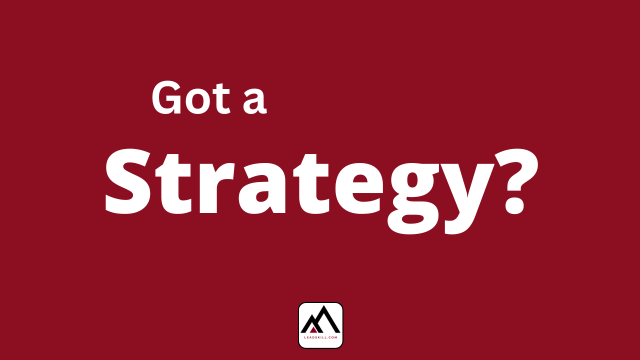Going on a Leadership Talent Journey
Talent management system. I’m wondering what that evokes for you.
Assuming it’s something besides a question mark (“What is that?”), I’m guessing that most people think of software or some sort of computer program or cloud app that helps a company manage people or talent.
And you wouldn’t be wrong either. Talent management systems (as software) make up a $10 billion market in 2024 and it’s expected to keep growing at a 12% annual compounded rate each year through the end of the decade. That’s serious money.
You might think that only big companies use such things as a talent management system but the fact is that small, medium and large companies are all customers of these products/services.
You’ve already taken my bait. It’s not that we can’t code a system for managing people in an organization and package it as a talent management system (TMS). Of course we can.
But once you start thinking of it as a product, service or Saas, you stop thinking of what it should really do and why you might need it in the first place.

A Question for the Leader
The basic question to ask is “What’s your vision for your business?” Where will you be in 3 years or ten years, and what will it look like?
The vision question is fundamental. If you don’t know where you’re headed, how can you effectively plan and set goals to get to an undisclosed location?
Most everyone has a vision, but it may not be clear nor inspiring to others—or even ourselves if we’re honest.
A leader tackles the vision question and they have an answer to it, even if it’s not the final or ultimate answer. A non-leader shrinks from articulating a vision.
From Vision to Victory in One Leap?
Your vision doesn’t come about in one great push. It only happens in single steps made repeatedly and consistently like in a long journey.
There are many things that can distract or divert you on the journey toward vision. One of those is losing sight of the vision itself. Another is the many small and sometimes seriously big problems.

A weak leader thinks they have to face the problems alone. They don’t share the burden with anyone. A leader finds people to journey with them, to solve problems together, to share faith in the vision.
Again, it’s a weak leader who believes that money alone is enough to keep people focused on the job. People certainly want money for their troubles, but they want more as well.
Talented people want to grow and learn. They want to do meaningful things that matter. Talented people want to share a journey that gives them purpose even if they don’t complete the journey with you.
Leaders face their problems with talented people instead of seeing people as the problem. Many people have more talent than we realize. They are creative and capable of rising to the occasion. But you have to treat them as people. You also have to be a good manager of their talent.
The Talent Management System
This is where we need a system. When the team is small and sees each other almost daily, you can manage without formalizing your system. Yet even for a small team a system helps you to be consistent and conscientious and not let things fall through the cracks.

As the team grows and the complexity mounts, you need to give some thought to your system. How do we keep our vision in view? How do we focus on our goals and the small set of actions that move us closer to the vision every day?
There’s also the reality of growth. In order for revenue to grow, we have to grow. To serve more customers, we’ll probably need more staff. To create new products and services, we need talented people to create them, to sell them, to take care of customers. We need skilled people to manage the systems that allow us to do it at scale.
All of this growth creates complexity. A good system allows you to manage complexity. Bad systems add to the complexity or allow it to overwhelm you. An excellent system not only gives order to complexity, it also reminds you of your vision, purpose and the talented people who make it all happen.
Whether your system is coded into software or is coded into a strong culture that makes you distinctive, you need some kind of system. You need practices and processes that work. You need rituals and values that resonate with the real people who make things hum.
This is what I mean by a talent management system. It’s more than software or a platform. A TMS is a particular know-how and a way of doing things that is effective in producing results and honoring people. It’s a way of being that makes everyone feel more alive and human, not dead and machine-like.
You’ve already got a TMS. Are you aware of what it is? Is it working for you and helping you produce better results and taking care of people?
The Bottom Line
Good leaders know these are the right questions. They have some answers to the questions as well and they’re working on producing better answers to the questions that they stumble on.
At Leadskill, this is the work we do every day. We work with leaders to raise and answer the questions that matter. We tackle the issues that are tough but worth working on. It starts with a conversation, and we’re honored to make time for that with you.
